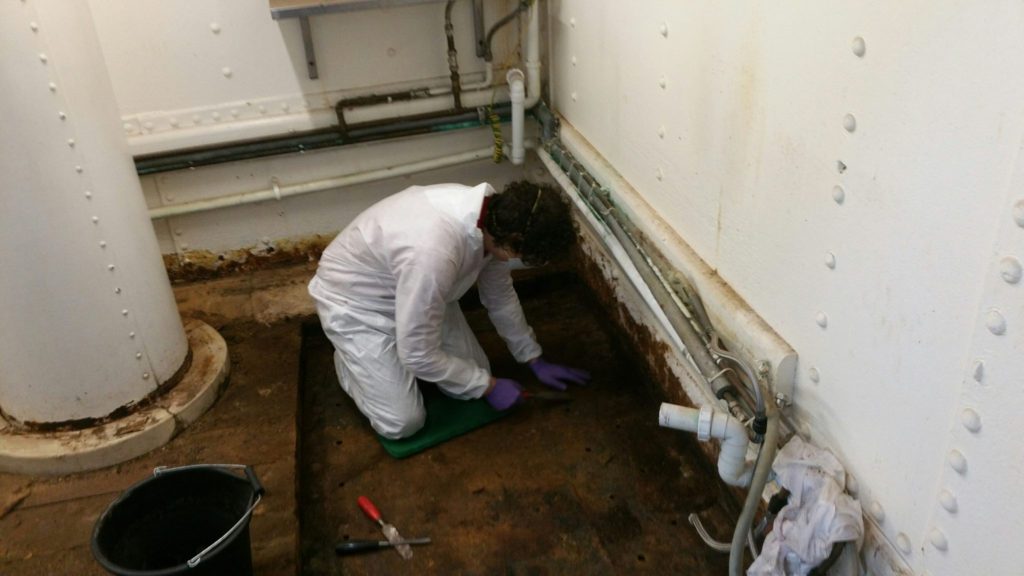Recent Graduate Experience
We’ve had a number of graduates move on to really exciting and interesting positions over the years and we thought it might be nice to catch up with some of them to see where they are and what they’re doing. Today we’re talking to Bryan, one of our recent graduates. Bryan studied in Durham on the course in 2015 and went on to complete a placement at the Royal Armouries Museum in 2016.

Where are you working right now?
I started working at the National Museum of the Royal Navy in November 2017. It has 11 amazing heritage attractions across the UK, including the Royal Navy Submarine Museum in Portsmouth, National Museum of the Royal Navy in Hartlepool and the Fleet Air Arm Museum in Somerset. These sites reflect the fact that the Royal Navy operates on the sea, under the sea, on the land and in the air.
What are some of your responsibilities?
As one of the conservators for NMRN the responsibility lies mainly to the historic ships, boats and aircraft in the collection but also to the objects in the museum collection. This also involves environmental and light monitoring, pest management and managing a team of ship keepers in doing the preventive housekeeping on the ships.
What have you been working on lately?
Recently I’ve been treating the original metal plates on the ceiling of the coal bunkers on HMS Warrior. They’re a badly corroded area due to moisture and salt, and it was an interesting but challenging part of the ship to treat due to access, which was via scaffolding.

What is one of your favourite objects in the NMRN collections?
I really like Hollande 1 which was the Royal Navy’s first submarine. It’s quite fascinating both from its historical perspective but also its past and continuing conservation challenges.
How did you become interested in conservation?
While I was working for the National Trust as a lighthouse steward, and although my job included many tasks the most interesting was assisting in the preventative care of the property which under the guidance of a conservator sparked my interest and enthusiasm.
How did the conservation course at Durham help you get where you are now?
Studying at Durham provided me with the right environment to realise my interest in conservation. It provided an excellent atmosphere to gain the necessary skills and knowledge in preparation for a career in conservation.

1 Comments
E Morter mrs